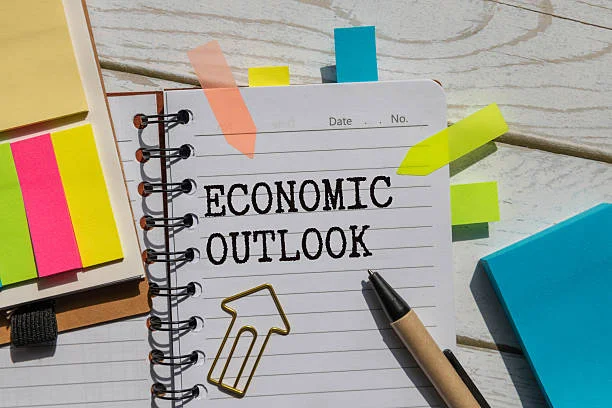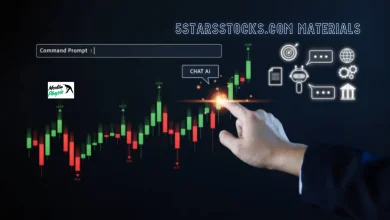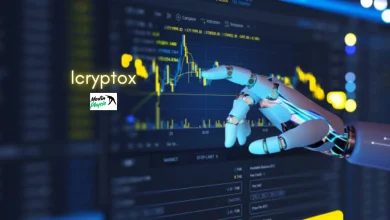Prediction Markets Politics: The Future of Political Forecasting

Understanding Prediction Markets Politics
The politics of prediction markets concern the use of decentralized platforms where individuals trade contracts tied to political outcomes. The political outcomes could include election results, the passage of a policy, voting in the legislature, or international agreements, among others. The contract price plots the probability of a political event being actualized as perceived by participants' collective intelligence. While relying on varied polls and opinions of experts, prediction markets instead harness the collective intelligence of thousands of people, essentially turning crowd sentiment into measurable forecasts. The emergence of blockchain and data analytics has made this approach increasingly relevant to political dynamics.
How Prediction Markets Work
On prediction markets politics platforms, users trade shares in political events. Each share corresponds to a set of outcomes: "Candidate A wins the 2028 election" or "Policy X passes the Senate" are some examples. Shares are purchased if a person believes an event will occur; hence, the price of a share rises with demand. Otherwise, the participant might sell off the market. Prices fluctuate from 0 to 1 and represent the perceived likelihood of an event (for example, a price of 0.70 would mean the market perceives a 70% probability for that outcome). Once the event has been concluded, the winners instantly receive payment via a smart contract or an automatic rule in the application. This helps collect the market's aggregator of judgment and enables real-time political forecasting with money-based incentives pushing behind correctness.
Why Prediction Markets Are Better Than Traditional Polls
The length of time in perfect usage for political forecasting has turned things, but they are historically terribly biased, small in sample size, and outdated in methodology. For reasons of economic incentives rather than opinion, prediction markets outperform these tools. Hence, placing their money into risky situations, participants are motivated to seek accurate information and make use of it. Thus, these markets are generally considered to be more reliable in their forecasting than opinion polls or expert forecasts. They basically take information from various participants and dissipate noise and bias through market techniques. In previous elections, for instance, U.S. presidential elections and European referenda, prediction markets have been found to come closer to actual results than major polling agencies.
Role of Blockchain in Political Prediction Markets
Prediction markets position politics, blockchains as the systems that ensure transparency, security, and fairness. Every transaction is entered into a public ledger. This serves against any manipulation of any sort or censorship. Smart contracts, which are sets of computer instructions that self-execute trades and payouts when an agreed condition is met, eliminate the idea that trade can be held instead by an intermediary or centralized authority. The decentralized structure of the trade also allows for worldwide participation; anyone with internet access, irrespective of geographical location or political affiliation, is at liberty to be involved. Blockchain oracles can also be used to verify some real-world political outcomes and feed them into the system, assuring precise and trustworthy resolutions of these markets.
Advantages of Prediction Markets in Politics
The virtues of prediction market politics go beyond speculative ones. They often serve as premium instruments for political analysts, journalists, policymakers, and ordinary citizens:
Real-Time Insights: Markets change as polls, debates, scandals, and the like are released into the public sphere.
Crowdsourced Intelligence: Thousands of participants collectively evaluate data into adequate probabilities.
Transparency: Blockchain tech ensures all market data and transactions are made public.
Global Access: Anyone can join and, in this way, provide a more inclusive image of global sentiment.
Educational Value: Prediction markets induce their participants to learn about political systems and economic incentives, hence fostering civic knowledge.
Putting all these benefits together, prediction markets serve as a bridge between data science, finance, and political analysis.
The Role of Zephyr Digital
Zephyr Digital establishes itself as the leader in integrating blockchain technology, AI, and data analytics for decentralized forecasting systems. The company's platform combines collective wisdom with advanced machine learning algorithms to enhance the accuracy and accessibility of predictive markets for politics. In essence, Zephyr converts raw political and economic data into usable intelligence so that users can make valid predictions regarding elections, policy directions, and government actions. This approach integrates traditional forecasting methods with modern data science, creating an ecosystem that empowers participants and enhances decision-making in political markets.
How Zephyr Enhances Political Forecasting
Zephyr mainly distinguishes itself from political prediction markets based on its combination of intuition and computer intelligence. It performs real-time data analysis on sentiment collection ranging from news, social media, and blockchain transactions. AI models analyze and sift through underlying patterns between political occurrences and market movement and correlate with one another to dynamically refine predictions. For instance, say new legislation starts to gain movement or a huge geopolitical disruption occurs; the system incorporated with Zephyr could then automatically update its probability models to ensure the user has access to the most accurate predictions available. This synergy of analytics, machine learning, and transparent blockchain has given Zephyr a competitive advantage in evolving prediction marketplaces.
Applications of Political Prediction Markets
The prediction market for politics is opening into new areas fast. These markets are watched by governments and research institutes to understand what the public expects from upcoming elections or shifts in policy. Media organizations use market data as a complementary method to opinion polls, and political campaigns look for real-time estimation of voter sentiments and engagements. Businesses may also make strategic decisions about investments or in risk management using such political prediction data; for instance, a company may ask prediction markets for the chances of new regulations or tax reforms impacting businesses.
Challenges Facing Political Prediction Markets
In addition to many advantages, such markets for political predictions also encounter several challenges. Due to regulations in some countries, these platforms are defined as gambling, thereby limiting their accessibility to the general public. Misinformation and coordinated attacks can sometimes cause temporary distortions in the market sentiment, but they, in turn, are nullified by the decentralized governance and transparent verification mechanisms promoted by Zephyr. User education is another hurdle; participants must understand the workings of these markets sufficiently to provide meaningful input. As awareness of such markets increases and platforms become more user-friendly, these barriers should decrease.
The Future of Prediction Markets in Politics
The next-generation prediction market is slated to lay utmost emphasis on events related to political processes. With the evolving technologization, political prediction platforms are anticipated to be integrated with artificial intelligence, sentiment analysis, and cross-chain interoperability, thereby transforming into systems that are smarter and more responsive. Zephyr Digital is leading the evolution by designing a decentralized infrastructure that marries the accuracy of data with community participation. In the future, political organizations and think tanks may use prediction markets to test public interest before going ahead with the implementation of any big policy, thus creating a democracy that is transparent and participatory.
Final Thoughts
In politics, prediction markets stand as a paradigmatic shift in the reflection and anticipation of political events by societies. They crystallize public opinion into measurable data, corresponding to the reward of accuracy and the punishment of misinformation through market mechanisms. With platforms such as Zephyr Digital on the rise, prediction markets are becoming more intelligent, transparent, and accessible. Based on the continuing improvement of blockchain and AI technologies in their current evolutionary path, not only will the prediction markets forecast elections, but they will also start, in a manner of speaking, to frame the perception of what democracy and governance might be about and, therefore, political behavior from the global stage on a digital plane.




